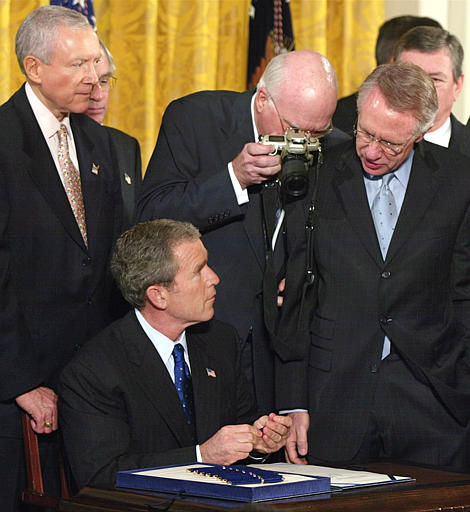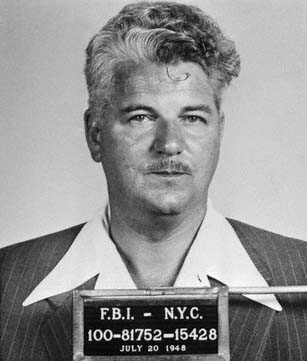The application of conspiracy laws requires a tacit agreement among members of a group to commit a crime. Such laws allow the government to charge a defendant regardless of whether the planned criminal act has been committed or the possibility of the crime being carried out successfully.
Conspiracy laws can be enforced when individuals take steps to execute crime
It is not illegal to think about committing illegal acts — such as in the case of civil disobedience — as any law that would criminalize the mere thought or suggestion of committing an illegal act would be a free speech violation.
Conspiracy laws can only be enforced after individuals take an initial step beyond planning and toward execution of an illegal deed. An individual who has agreed to participate in a crime is not required to know everyone involved in the plot in order to be charged with conspiracy.
Conspiracy laws may interfere with free speech rights
Although the crime of conspiracy is contingent upon an agreement, as Broderick (1985) notes, federal law “provides no rule for determining which of the various conditional objects of a conspiracy should determine the legal status of an agreement” (p. 899). Agreements made through a verbal understanding or without written acknowledgment can both be considered forms of conspiracy. The most common criticism of conspiracy laws is this lack of specificity in what constitutes an agreement and intent.
Because of the ambiguities associated with the definition of conspiracy, there exist concerns about conspiracy laws interfering with First Amendment rights by allowing governments and states to crack down on those who disagree with the positions of the state.
For example, an agreement made among any number of people that asserts their willingness to subvert a disliked governmental policy or policies could be considered conspiracy. A state may fear opposition to its policies and in response pursue conspiracy-related charges against those speaking out against them.
Communist Party members charged under conspiracy law in 1948
In a famous conspiracy case, Communist Party members were arrested in 1948 and charged with conspiring to teach or advocate the violent overthrow of the government in violation of the Smith Act of 1940. They appealed, and in Dennis v. United States (1951), the Supreme Court, in a plurality decision written by Chief Justice Frederick M. Vinson, applied the “clear and present danger” test to uphold the convictions.
According to the Court, “[T]he end being punishable, there is no doubt of the power to punish conspiracy for the purpose.”

Sen Patrick Leahy D-Vt. peers over the shoulder with his camera as President Bush signs the Patriot Act Bill during a ceremony in the White House East Room, Friday, Oct. 26, 2001. The law gives police unprecedented authority to search people’s homes and business records secretly and eavesdrop on telephone and computer conversations and the government says it will begin using the new powers immediately. Some point to the law as an important tool by allowing authorities to charge individuals with conspiracy before the act of terror has occurred. Left to right are: Sen. Orrin Hatch, R-Utah, Patrick Leahy, D-Vt., Sen. Harry Reid, D-Nev. (AP Photo/Doug Mills, used with permission from the Associated Press)
Clear and present danger standard introduced
The decision was based on an analysis by Judge Learned Hand of the 2nd U.S. Circuit Court of Appeals. According to Hand, the question was “how long a government, having discovered such a conspiracy, must wait” to act. “When does the conspiracy become ‘a present danger’?” He concluded, “In each case [the government] must ask whether the gravity of the ‘evil,’ discounted by its improbability, justifies such invasion of free speech as is necessary to avoid the danger.”
Broderick (1985) observes that proponents of conspiracy laws justify them to prevent the execution of crimes “whose likelihood of occurrence has grown great” and to allow for the state “to apprehend conspirators who have revealed a clear expectation of committing specific crimes” (p. 905).
Conspiracy statutes can be and sometimes are misapplied and used against government opponents because of the ambiguities regarding what is considered an agreement and whether it constitutes harm, even when the scheme is not practical and cannot be realistically accomplished.
In contrast, others point to such laws as important tools, for example, in the “war on terrorism,” by allowing authorities to charge individuals with conspiracy before the act of terror has occurred.
Donald Trump charged with conspiracy to defraud U.S.
In 2023, federal prosecutors charged former president Donald Trump with conspiracy to defraud the United States for actions he took to reverse the results of the 2020 presidential election, which he lost. The charges included actions he took to pressure Republican lawmakers and state officials to throw out votes for Biden, which he claimed were fraudulent, and other actions to stop Congress' certification of the vote, including trying to pressure his vice president, Mike Pence, to either install Trump electors instead of those sent by the states to vote for Biden or to stop the count entirely. He also organized a rally in which he urged his supporters to "fight" for him, after which many proceeded to attack the U.S. Capitol on Jan. 6, 2021, temporarily halting the vote certification by Congress. Trump's lawyers say they plan to fight the conspiracy charges at least partly by citing the First Amendment, which protects Trump's right to free speech, even if he was saying untrue things about the election. But others say the charges are based on actions he took and do not interfere with this free speech rights.
This article was originally published in 2009. Dr. Wendy N. Whitman Cobb is Associate Professor of Strategy and Security Studies at the School of Advanced Air and Space Studies (SAASS). It was updated in August 2023 by Encyclopedia staff.

